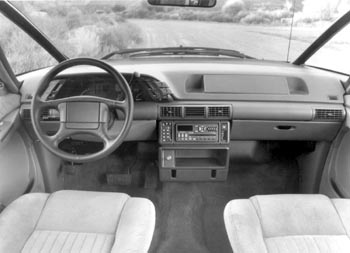![[Metroactive News&Issues]](/gifs/news468.gif)
[ San Jose | Metroactive Central | Archives ]
The Air in There
Pollution on the road is nothing compared to the air blowing into an auto's vents
By Michael Learmonth
EVERY AFTERNOON and evening, my disposition turns from generally amiable, after a somewhat fulfilling day at work, to downright nasty, mean and incensed at the world. I'm not a road-rager. I keep it all bottled up inside, expressing my discontent by exhibiting impeccable road manners, hoping that my politeness will rub off or at least shame some of the mouth-breathing ingrates who push their way onto the same stretch of 880 with me every morn and night.
Fat chance, I know.
Where calculated politeness fails I turn to fantasy: that I really do have a forward-mounted rocket launcher at my command, that there really is a highway patrolman up around the next turn to do police brutality on the next carpool violator. And sometimes I turn to my most forbidden fantasy of all: that the Nasdaq just crashed and a flurry of pink slips sends all the SUVs back to their three-car garages in Pleasanton.
End fantasy. The reality of car-commuting gets uglier all the time. Aside from the obvious stress and safety-related health challenges cars present, not to mention the fact they're choking the planet, the inside of all passenger cars and trucks is about 10 times more toxic than the ambient toxic stew emanating from the tailpipes outside. This according to the California Air Resources Board, which just concluded a $440,000, two-year study of air quality inside vehicles.
"We're learning that people's highest daily exposure to air pollutants may be during their commute to and from work," says board chairman Alan Lloyd.
While sometimes offshore breezes grant us a reprieve from the smog in the sky, every day is a Spare the Air day inside your car.
What can be done? Not a whole heck of a lot. Federal law requires that every car must have 20 percent intake, even with vents closed.
In comes auto exhaust, including a carcinogenic cocktail of benzene, 1,3 butadiene, ethyl benzene, toulene, xylene and everyone's favorite gasoline additive, MTBE. But of all the toxins those may be the least worriesome. New research indicates particulate matter from diesel exhaust may be the most toxic of all, collecting in lungs, calcifying and restricting breathing passages. The average car following a diesel truck's tailpipe will scoop up 700,000 particles a minute.
From this den of bad news comes another small reason for carpoolers to feel smug. Researchers found the carpool lane was the cleanest--or shall we say the least dirty--due to the fact it was farthest from the lanes used by trucks.
The obvious answer to this would be to put trains in a few of the lanes so we could commute to work like civilized mammals. But that would be too simple, or, as we're told, too expensive.
Fortunately, there's a capitalist in Texas working on a stopgap solution. The following is an unpaid infomercial for Airtech, maker of the Airsopure Model S-999 auto air-filtration unit, which, according to Doug Keane (of Airtech), "removes 99 percent of all airborne contaminants from inside automobiles."
Airtech (Nasdaq: AIRG) started out making restaurant air purifiers and has since branched out into hotels, schools, offices and medical clean rooms. The unit, which costs $595, plugs into a cigarette lighter and promises to completely exchange the air within an average vehicle completely about 180 times an hour.
The first large-scale customers for the S-999 are people who spend their days in cars. Airtech is negotiating with Peterbilt to make the system an option for truckers. And three police departments--Dallas, Fort Worth and South San Francisco--have decided to make the S-999 standard equipment in squad cars.
Keane points out that since truckers follow each other, they breathe large amounts of diesel particles. Cops had a different motivation. The S-999 picks tuberculosis bacteria out of the air, which had been a major disincentive to booking people who look like they're about to hack up a lung.
Keane offered me a unit to try but I declined, citing journalistic ethics and the fact that I wouldn't need it as much because of my four-member carpool.
Not so, he says, carpoolers are notorious for passing bugs around, even if they do roll down the window before sneezing. Good point, I thought, but there's another thing. We've learned from years of carpooling experiences that, should it become necessary, a complete air exchange inside the vehicle is no more than 33 seconds away.
And there's not a lot that the S-999 can do about that.
[ San Jose | Metroactive Central | Archives ]
Copyright © 1999 Metro Publishing Inc. Metroactive is affiliated with the Boulevards Network.
For more information about the San Jose/Silicon Valley area, visit sanjose.com.
![]()

From the September 23-29, 1999 issue of Metro, Silicon Valley's Weekly Newspaper.